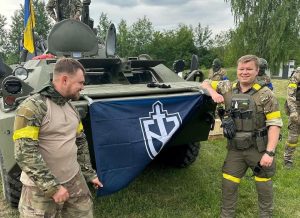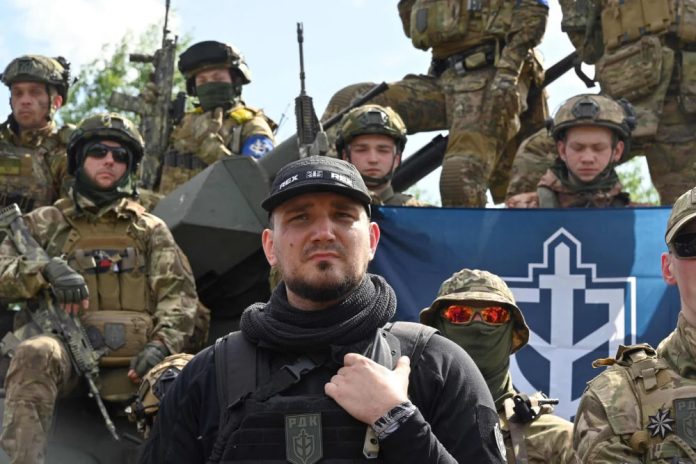After several weeks of attempts by various formations under the command of the Ukraine’s Main Directorate of Intelligence (HUR) to cause disorder on the Russian border, the Russian Volunteer Corps (RVC) reported the termination of active combat operations on Russian territory.
Though our RVC units and sleeper cells stay in the region, it is time to honour the memory of our fallen fighters.
Reports about the RVC first appeared in March 2022, right after the outbreak of the war in Ukraine at the end of February. At that time, the Ukrainian authorities announced the formation of the legion composed of Russian volunteers and captured soldiers who decided to switch sides.
Limited Military Operation
The units initiated active combat operations, also known as the Limited Military Operation, in the Belgorod and Kursk border regions between March 12 and 21, 2024, with the RVC actively participating in the mission.
Russian military officials reported on March 12 an attempt by “armed groups in pickup trucks” to breach the border in the Belgorod region. A number of armed clashes have since taken place in the border areas near the Kursk and Belgorod regions.
According to Governor Vyacheslav Gladkov, 16 civilians have been killed in the Belgorod Region from March 12 to 19 as a result of shellings, with another 98 people suffering from injuries.

One of the reasons for the intensified attacks is believed to be an attempt to put pressure on Russia during the presidential election. Denis Nikitin, founder of the RVC, stated on the eve of the vote that one of the operation’s objectives was to influence the election, adding that Russian volunteers would do everything to ensure that there would be no elections in the regions bordering Ukraine.
I will not share all the specifics, but certainly to influence, or at least to show people that this is not an election, is one of the political objectives of the current operation.
Another version was an attempt to make it look like an active threat that could divert some Russian forces from more important directions in order to weaken crucial front lines. However, the attack ultimately failed, the Russian Defence Ministry reported.
Recognised in Ukraine
The head of the Ukrainian Defence Ministry’s Main Directorate of Intelligence (HUR), Kyrylo Budanov, praised the RVC’s actions during an interview with a Ukrainian TV channel, adding that the group’s activity brought “certain benefits”.
As of today, it is very advantageous for us that they [the RVC volunteers] have managed to distract the groups, to divert forces on the battlefront.
Andriy Cherniak, a spokesman for the HUR, said that Kyiv supported the Russian Volunteer Corps and the Freedom of Russia Legion, with Ukrainian intelligence co-operating with them “only in informational terms”, according to The Financial Times.
We communicate with them. Of course, we share certain information. And, one might say, we even co-operate.
Destabilisation attempts
Military and political experts believe that the actions of the RVC are aimed at putting pressure on the older Russian regions. Some also suggest that raids by such groups may be an attempt to destabilise the situation in the country by a third party, which is wary of taking a direct part in the conflict out of caution. Thus, none of the top officials will be held responsible for such pressure, experts note.
